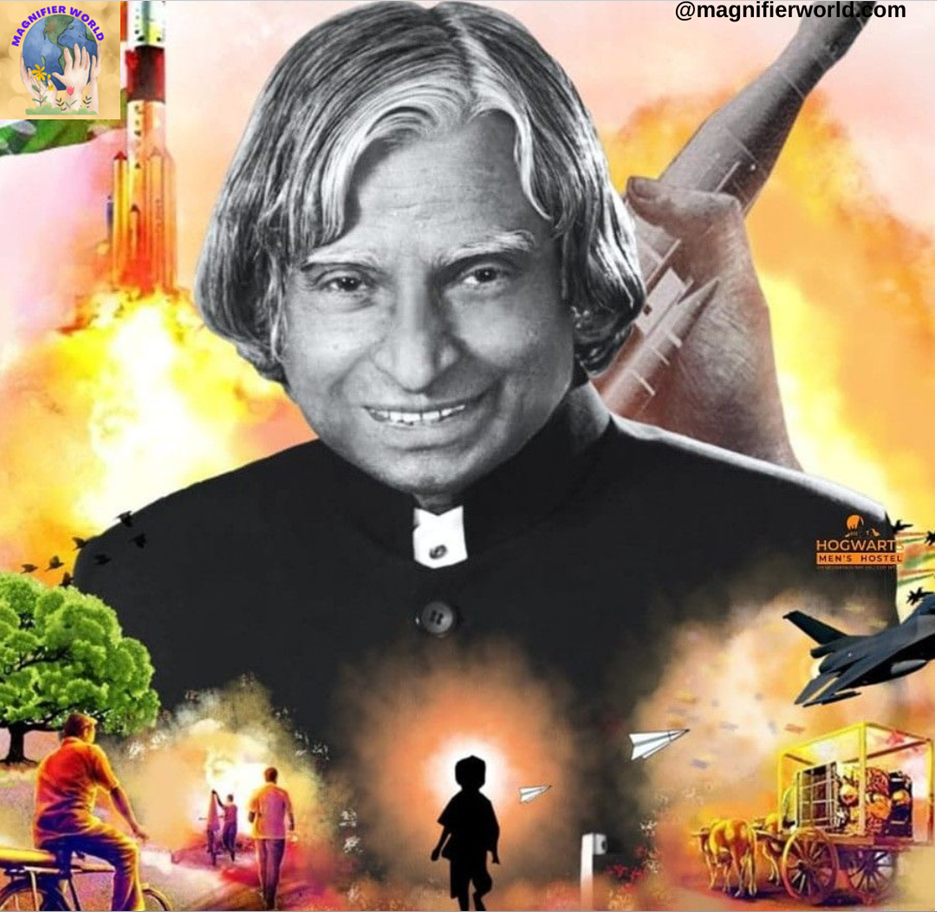Introduction: Top 10 Scientists of India
Make sure to check out our Top 10 Scientists of India list! These brilliant minds have made significant contributions to science and engineering, both in India and abroad.
India, a country famed for its plethora of cultural traditions and rich cultural legacy, has also served as a favourable environment for the development of brilliant scientific minds who have enlightened the globe with their ground-breaking discoveries and creative contributions. Indian scientists have made an unmistakable impact on the world’s scientific landscape, demonstrating that intelligence knows no bounds, from the time of Aryabhata to the present.
It is only appropriate to recognize the outstanding brains that have brought India into the international arena of innovation in this era of fast technological developments and scientific discoveries. This article explores the inspirational travels and ground-breaking discoveries of the Top 10 Scientists of India, who have significantly influenced our knowledge of the cosmos, technology, and medicine.
These scientists have transcended social boundaries and surmounted obstacles to become role models for future generations. Their efforts have improved human understanding and significantly touched lives, from solving cosmic mysteries to developing ground-breaking medical treatments.
We will examine the incredible lives and achievements of visionaries who have made a lasting impact on subjects as diverse as space exploration, particle physics, renewable energy, and more as we set off on this instructive voyage through the annals of Indian scientific brilliance. From Homi Bhabha’s groundbreaking work in nuclear research to Dr. Tessy Thomas’ ground-breaking concepts in missile technology, these geniuses have catapulted India to the top of the scientific innovation food chain.
The scientific legacy of India has left its name in the annals of world scientific progress. Their commitment, tenacity, and unquenchable curiosity serve as a reminder that the search for knowledge has no bounds and that human creativity can transform the world regardless of the difficulties encountered.
We shall go on a fascinating examination of the top 10 scientists of India in the pages that follow, digging into the specifics of their research and the effects they had on the globe. Their experiences serve as both a tribute to India’s scientific strength and an inspiration for young people throughout the world.
1. Dr. APJ Abdul Kalam
Dr. Avul Pakir Jainulabdeen Abdul Kalam, better known by his stage name APJ Abdul Kalam, was a scientist who broke new ground and was an inspiration to Indians. Kalam’s legacy is based on his contributions to aerospace engineering, defense technology, and his position as India’s 11th President. He was born on October 15, 1931, in Rameswaram, Tamil Nadu and one of the top 10 scientists of India.
Dr. Kalam’s collaboration with the Defense Research and Development Organization (DRDO) and the Indian Space Research Organization (ISRO) was essential in advancing India’s space and missile programs. He was credited with helping to build indigenous missile systems like Agni and Prithvi, earning the nickname “Missile Man of India.” His innovative leadership style and commitment to research and development forever changed India’s capacity for defence.
In addition to his scientific accomplishments, Dr. Kalam was an excellent teacher and a passionate supporter of education. He actively interacted with kids, encouraging them to dream large and achieve greatness in science and technology because he believed in the transforming potential of youth. Generations of people have been inspired by his publications, talks, and encounters with pupils.
Dr. APJ Abdul Kalam became well-liked in India and outside because of his humility, vision, and dedication to fostering national progress. He won many honours, including the Bharat Ratna, the country’s highest civilian award. As a scientist, a leader, and a genuine representation of India’s scientific brilliance, his legacy endures in the hearts of millions of people.
2. Dr. C.N.R. Rao
C.N.R. Rao, also known as Dr. Chintamani Nagesa Ramachandra Rao one of the of the top 10 scientists of India, is a leading person, in the science of chemistry. Dr. Rao, who was born in Bangalore, Karnataka, on June 30, 1934, has made contributions to a variety of fields in solid-state and materials chemistry.
Dr. Rao, the top 10 scientists of India has had a distinguished career filled with ground-breaking research, and his work has had a significant influence on our knowledge of complex materials. He has written multiple books and more than 1,600 research articles, making a substantial contribution to the growth of science. His research has touched on topics including molecular structure, nanomaterials, and superconductivity.
International acclaim for Dr. Rao’s accomplishments has led to his presentation of him with honorary titles including the Bharat Ratna and the Linus Pauling Award. His leadership at many scientific institutes, such as the Jawaharlal Nehru Centre for Advanced Scientific Research (JNCASR) and the Indian Institute of Science (IISc), has been crucial in developing India’s scientific potential.
Dr. C.N.R. Rao has been a fervent supporter of science education and research outside of his professional endeavours. He has become a renowned person in the world of science thanks to his commitment to expanding the boundaries of chemistry and his influence on the development of Indian science.
3. Venkatraman Ramakrishnan
Dr. Venkatraman Ramakrishnan is an American structural biologist of Indian descent who has won acclaim worldwide for his revolutionary contributions to our comprehension of the composition and operation of the ribosome. Ramakrishnan, who was born in 1952 in Chidambaram, Tamil Nadu, has made significant contributions to our understanding of the molecular processes involved in protein synthesis in cells. Along with Thomas A. Steitz and Ada E. Yonath, he shared the 2009 Nobel Prize in Chemistry for his research on the ribosome.
In molecular biology and biochemistry, Ramakrishnan’s contributions are crucial because they illuminate the intricate process of turning genetic information into proteins. His work has ramifications for both the creation of new medicines that target bacterial ribosomes as well as for the understanding of basic biology.
4. Dr. M.S. Swaminathan:
The work of famous agricultural scientist Dr. M.S. Swaminathan, known as the “Father of the Green Revolution in India,” has had a significant influence on food security and agricultural production across the world. In the middle of the 20th century, high-yielding varieties of wheat and rice were created because of Swaminathan’s groundbreaking work in plant breeding and genetics. Swaminathan was born in 1925 in Kumbakonam, Tamil Nadu and oneof the top 10 scientists of India.
Swaminathan played a critical role in changing India from a food-deficit country to an agricultural powerhouse by developing these high-yielding crop types. He not only reduced hunger and poverty but also acted as a role model for sustainable farming practices all across the world with his research-driven approach to crop enhancement.
In addition to his contributions to science, Swaminathan has promoted sustainable agricultural development, biodiversity preservation, and the empowerment of small farmers. He has received various honours for his inspiring leadership, including the World Food Prize and the Padma Vibhushan, India’s second-highest civilian honour, as well as a significant influence on international agricultural policies. The legacy of Dr. M.S. Swaminathan motivates attempts to tackle the problems of feeding a growing world population while preserving the environment.
5. Vikram Sarabhai, M.D.
The Indian space program is commonly recognized as having its roots in Dr. Vikram Sarabhai (1919–1971). Vikram was a pioneering scientist, innovator, and leader who had a significant influence on India’s space programs. He was raised by parents who were devoted to science and education. He was born in Ahmedabad, and one of the top 10 scientists of India. Dr. Sarabhai saw how space technology may advance India’s socioeconomic growth.
He established the Indian National Committee for Space Research (INCOSPAR) in 1963; this organization eventually changed its name to the Indian Space Research Organization (ISRO). Aryabhata, India’s first satellite, was successfully launched in 1975 because of Dr. Sarabhai’s foresight. Additionally, he started several significant initiatives, such as the creation of weather satellites, remote sensing satellites, and the renowned Chandrayaan-1 expedition.
Dr. Sarabhai’s steadfast commitment to the peaceful application of space technology for social improvement has had a significant influence on India’s scientific community. Generations of scientists and engineers are still motivated by his legacy to push the boundaries of technological and scientific advancement in space.
Read More:–The Space Lady: Kalpana Chawla
BROTHERS TUBE
6. Dr. Homi Bhabha:
A talented nuclear physicist and the brains behind India’s nuclear energy program, Dr. Homi Jehangir Bhabha (1909–1966) was a pioneer in the field. He was born in Bombay (now Mumbai), India, and significantly influenced the advancement of nuclear science and technology on both a national and global scale of the top 10 scientists of India.
International acclaim was brought on by Dr. Bhabha’s groundbreaking work in quantum field theory and cosmic rays. He helped lay the groundwork for the Tata Institute of Fundamental Research (TIFR), which grew to become a centre for cutting-edge interdisciplinary study. Beyond nuclear physics, his ambition included aggressively advancing scientific study and research in India.
Dr. Bhabha played a key role in developing India’s nuclear energy program as the Atomic Energy Commission of India’s first chairman. His work resulted in the creation of the Trombay Atomic Energy Establishment, which is today the Bhabha Atomic Research Centre and a hub for nuclear research and development.
Tragically, an aeroplane disaster in 1966 resulted in the death of Dr. Bhabha. His contributions to nuclear physics and his influence on India’s scientific environment continue to have an impact, despite his untimely passing. In the area of nuclear science and technology, he continues to represent India’s quest for academic achievement and independence.

7. Dr. Raghunath Anant Mashelkar
An accomplished chemical engineer and scientist from India noted for his groundbreaking work in polymer science and technology is Dr. Raghunath Anant Mashelkar. Dr. Mashelkar, who was born on January 1st, 1943, in Maharashtra, India, has made significant contributions to many different sectors and scientific disciplines.
Dr. Mashelkar concentrated his research efforts on rheology, material science, and polymer processing throughout his career. His substantial contributions to the knowledge of polymer behaviour, manufacturing procedures, product development, and industrial applications have all improved. His work has been essential in closing the gap between theoretical academic study and real-world industry application.
As a result of his outstanding achievements, Dr. Mashelkar has received various honours, including the coveted Padma Shri and Padma Bhushan awards from the Government of India. The J.C. Bose Fellowship and the United States National Medal of Technology and Innovation have both been given to him. Dr. Mashelkar has been a supporter of scientific-driven policy outside of his research and has significantly influenced India’s science and technology scene. His leadership has been crucial in advancing the nation’s entrepreneurship, innovation, and sustainable development.
8. Dr. Har Gobind Khorana
Biochemist Dr. Har Gobind Khorana was an Indian-American who was born in Raipur, India, on January 9, 1922. He produced revolutionary advances in the realm of molecular biology, especially in the understanding of the genetic code and its function in protein synthesis. Our understanding of DNA and RNA has advanced as a result of Dr. Khorana’s groundbreaking work.
The creation of the first artificial gene, which resulted in the production of a useful protein in a bacterial cell, was one of his most important accomplishments. This accomplishment was a significant step towards the synthesis and manipulation of genetic material, having ramifications for biotechnology and medicine.
Dr. Khorana shared the 1968 Nobel Prize in Physiology or Medicine with two other scientists in appreciation of their ground-breaking discoveries. In addition to advancing our understanding of the basic functions of life, his work helped pave the way for the invention of methods like gene synthesis and genetic engineering, which have completely changed the areas of medicine and biotechnology.
The memory of Dr. Khorana continues to motivate academics and scholars throughout. His efforts serve as an example of how scientific research may help to solve life’s riddles and spur revolutionary developments that are beneficial to all people.
Read More:-Sunita Williams’ Latest Spacecraft Mission: A New Chapter in Space Exploration
9. Dr. Shanti Swarup Bhatnagar
A trailblazing Indian scientist who made important contributions to the disciplines of chemistry and chemical engineering, Dr. Shanti Swarup Bhatnagar (1894–1955) was born in India. His extraordinary scientific odyssey, which began when he was a child in Lahore, British India (now in Pakistan), established the groundwork for contemporary scientific inquiry in India. Colloid chemistry, catalysis, and industrial chemistry were just a few of the fields that Bhatnagar’s pioneering work touched.
He was a key figure in the 1942 founding of the Council of Scientific and Industrial Research (CSIR), and he later served as the organization’s first director-general. Under his direction, the CSIR developed into a world-class research institution that promoted innovation and development in many different scientific fields. Bhatnagar became known as a visionary leader and a role model for the next Indian scientific generations as a result of his commitment to scientific research and education.
10. Dr. Ashoke Sen
Dr. Ashoke Sen, an accomplished theoretical physicist from India, was born in 1956 and is well-known for his significant contributions to string theory, a subfield of theoretical physics that aims to unify the basic forces and particles of the universe. Dr. Sen received his education at the University of Calcutta and Stony Brook University, and his ground-breaking work has won him recognition on a global scale.
His groundbreaking work has significantly advanced our understanding of the fundamental properties of particles and interactions at the smallest sizes. Dr. Sen is renowned for his contributions to the “Sen Conjecture” and “S-duality,” which have advanced knowledge of string theory and its relationships to other areas of physics.
He has received various honours for his accomplishments, including the Fundamental Physics Prize and the Infosys Prize. In addition to advancing theoretical physics, Dr. Ashoke Sen’s efforts have motivated and aided other researchers in their search for a comprehensive understanding of the universe’s underlying principles.
Conclusion
India is delighted to have produced some of the most brilliant scientific brains in the world in a field where creativity knows no boundaries. The nation’s persistent devotion to knowledge advancement and indomitable spirit have been shown by this examination of the top 10 Indian scientists of India. The path of each scientist is a model of commitment, tenacity, and an uncompromising search for knowledge.
Whether it be physics, medicine, mathematics, or space exploration, these geniuses have had an everlasting impact on many scientific fields. The scientific community at large has benefited from their achievements, and younger generations have been motivated to pursue their passions and make significant discoveries as a result. It is critical to acknowledge and honour the contributions of these top 10 scientists, who have moulded the scientific landscape of India, as the country continues to develop and celebrate its scientific brilliance.
Want to learn more about some of the best Indian scientists? Check out our Top 10 Scientists of India list today!

FAQs related to Top 10 Scientists of India
Q1: Who is considered one of the top Indian scientists?
A1: Dr. APJ Abdul Kalam is widely recognized as one of the top Indian scientists for his contributions to missile technology and space research.
Q2: What field did Dr. Homi Bhabha excel in?
A2: Dr Homi Bhabha excelled in the field of nuclear physics and played a pivotal role in India’s nuclear energy program.
Q3: Which Indian scientist is known for his work on the Bose-Einstein statistics?
A3: Satyendra Nath Bose is known for his collaboration with Albert Einstein and his work on Bose-Einstein statistics, which laid the foundation for the field of quantum statistics.
Q4: Who is celebrated for his pioneering research in agricultural science?
A4: Dr. M. S. Swaminathan is celebrated for his pioneering research in agricultural science, particularly for his contributions to the Green Revolution in India.
Q5: In which area did Dr. C. V. Raman make significant discoveries?
A5: Dr. C. V. Raman made significant discoveries in the field of physics, particularly in the scattering of light, which led to the phenomenon known as the “Raman Effect.”
This article is related to the Top 10 Scientists of India.





